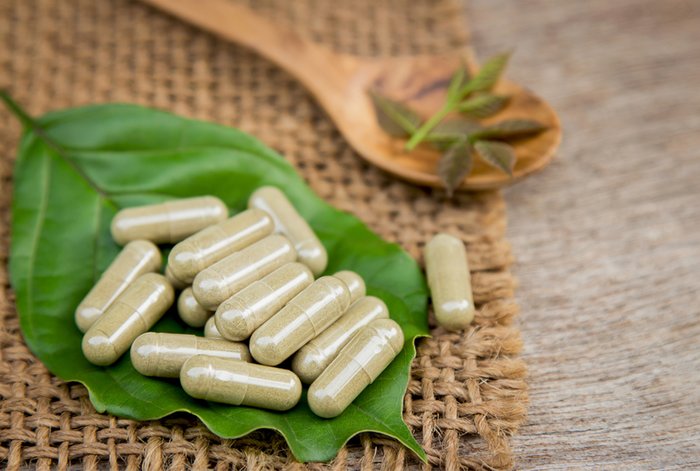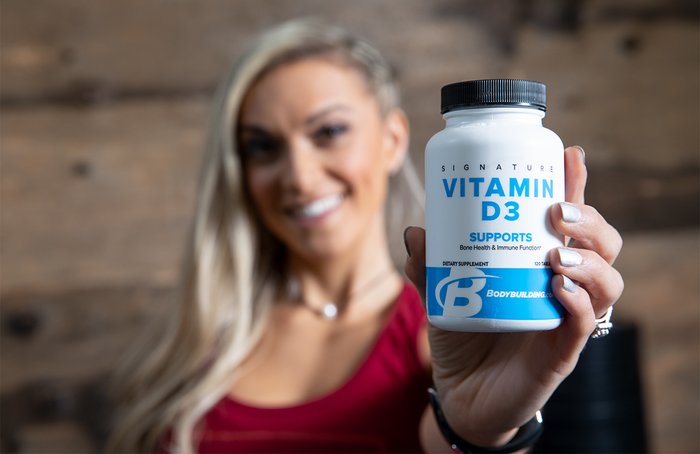Products You May Like
Six months after having to make drastic life changes thanks to the coronavirus pandemic, many people are going a bit stir-crazy. Millions have transitioned from working at the office to working from home. Gyms have closed, reopened, and in some cases, closed again. Many of us are now on a first-name basis with our local UberEats drivers.
Yet in the face of this adversity, people have persevered with their fitness. Home workouts like the ones offered in BodyFit are at an all-time high in popularity. Exercise equipment is sold out as people stock their home gyms. (Good luck finding a kettlebell anywhere.)
Assuming you’re still putting in the work, it’s important to keep your diet on track, too. For many of you, “diet” includes dietary supplements from Bodybuilding.com. Here are four ways that supplements are more important than ever during this global pandemic.
1. Maintaining Your Health Is Critical
One of the obvious challenges for athletes remains staying on top of their health. It doesn’t matter how hard you work in the gym, if your body isn’t healthy, it won’t have the energy it needs to build muscle and strength. One way that home gym-goers can make sure they are doing what they can for their health is to stay on top of their vitamin D intake.
Vitamin D is an important driver for the human immune system. The main source for most people is the sun, as sunlight activates chemical pathways in human skin that can create vitamin D. Alas, being cooped up inside for extended stretches stifles those pathways. This holds true especially for those who live north of the 37th parallel, where sunlight is generally less intense—everyone in the northern part of the United States and all of Europe! Taking vitamin D as a supplement can make an enormous difference in maintaining control of your health and bridging the gap between you and all that sunlight you’re not getting at home.*
2. When Times are Tight, Supplements Can Save Money
Athletes, especially bodybuilders, follow strict dietary regimens (or at least they are supposed to). Hitting specific macros every day requires a great deal of time and energy to buy, prep, cook, and consume all of the nutrients needed to perfect that physique, especially if you are one of the many unlucky workers who have lost their job this year.
Supplements are excellent for filling the nutritional gaps left by tight budgets. Having trouble meeting the monthly budget for groceries due to all those chicken breasts you buy? Try subbing in some protein powder. Per serving, whey protein is significantly less expensive and easier to prepare. Multivitamins are also great for those struggling to keep up with the many fruits and vegetables necessary to meet the RDIs for vitamins and minerals. While nothing will ever truly replace nutrients absorbed from a healthy diet, vitamins in supplement form are far better than no vitamins at all.
3. Variety Is the Spice of Life
With many of the nation’s restaurants and eateries remaining either closed or under restricted hours, we have been left to our own devices when it comes to achieving variety in our diet. No more running to the local smoothie shop for our morning pick-me-up; no more dinners at our favorite hole in the wall. For now, our food bubble has shrunk considerably. What’s left is our own ability to cook, and unfortunately, not everyone is the master in the kitchen they wish they were.

Going to the grocery store and buying ingredients is only the first step to consumption. There’s also a lot of work that goes into preparing and cooking the food, which can be harder than it looks. If you feel that your diet has become unbalanced, supplements may be right for you—at least in the short term, until you can learn to prep your favorite meals.
4. The Stress May Be Worse Than You Think
For many, being stressed is nothing new. Whether it’s a big interview coming up, a blind date, or even a high-intensity workout, we put ourselves under temporary stress all the time. By and large, the human body does a wonderful job of dealing with this stress through various mechanisms. Sometimes, however, those internal defenses can turn on us.
For example, one of the main reactions the body has to stress is the release of cortisol, a catabolic hormone whose job it is to activate the breakdown of energy stores. This translates to the breakdown of glycogen into glucose, muscle protein catabolism, and fatty acid oxidation, reactions that cause only negligible changes in the short term.

Over time, though, they can lead to serious problems. If you’re constantly under stress, cortisol will be there constantly, trying to “help.” With persistently increased stress thanks to the coronavirus pandemic, many people are at risk of having chronically elevated cortisol. While extra fatty acid oxidation may seem like a good idea now, not being able to store fats for when they are needed is a major problem. And muscle protein breakdown is definitely a concern for those trying to increase strength and size. Even the breakdown of glycogen can take a serious toll on an athlete’s ability to train at high intensities.
Thankfully, we’ve come to learn that certain ingredients can help cope with these ongoing stresses. Ashwagandha, for example, contains active chemicals known as withanolides that have been shown in many clinical trials to decrease significantly the body’s cortisol response to stress.*
If it seems like the weight of the world is constantly on your shoulders, give ashwagandha a shot and see if you don’t feel better.*
*These statements have not been evaluated by the Food and Drug Administration. This product is not intended to diagnose, treat, cure, or prevent any disease.

